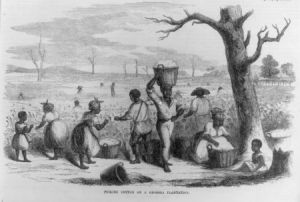 Today U.S. President Abraham Lincoln writes to abolitionist Horace Greeley, responding to Greeley’s public rebuke of the president for not doing enough to free African slaves:
Today U.S. President Abraham Lincoln writes to abolitionist Horace Greeley, responding to Greeley’s public rebuke of the president for not doing enough to free African slaves:
…I have not meant to leave any one in doubt….I would save the Union. I would save it the shortest way under the Constitution. The sooner the national authority can be restored; the nearer the Union will be “the Union as it was.” If there be those who would not save the Union, unless they could at the same time save slavery, I do not agree with them. If there be those who would not save the Union unless they could at the same time destroy slavery, I do not agree with them. My paramount object in this struggle is to save the Union, and is not either to save or to destroy slavery. If I could save the Union without freeing any slave I would do it, and if I could save it by freeing all the slaves I would do it; and if I could save it by freeing some and leaving others alone I would also do that. What I do about slavery, and the colored race, I do because I believe it helps to save the Union; and what I forbear, I forbear because I do not believe it would help to save the Union. I shall do less whenever I shall believe what I am doing hurts the cause, and I shall do more whenever I shall believe doing more will help the cause. I shall try to correct errors when shown to be errors; and I shall adopt new views so fast as they shall appear to be true views. I have here stated my purpose according to my view of official duty; and I intend no modification of my oft-expressed personal wish that all men everywhere could be free.
While Lincoln publicly separates his private abolitionist convictions from his public duties to save the Union–all the while having already privately decided to make an emancipation declaration at the earliest politically-appropriate time–white Baptists of the South, like other white southerners, yet want to believe that slaves enjoy their state of bondage.
A story circulating in the Baptist press of the South praises the faith of hero Gen. Thomas “Stonewall” Jackson while reinforcing the happily subservient state of Africans.
We have heard a good story on Stonewall Jackson. It has come to be commonly said in camp that nobody knows Stonewall’s secrets except his old negro body servant. Some one talking to the old negro asked him how he came to be so much in the confidence of his master. “Lord Sir,” said he, “massa never tells me nothing, but the way I knows in this–Massa says his prayers twice a day, morning and night–but if he gets out of bed two or three times in the night to pray, you see I just commences packing my haver sacks, for I knows there will be the devil to pay next day.”
Sources: Letter to Horace Greeley by Abraham Lincoln, August 22, 1862 (link); Biblical Recorder, August 20, 1862 (link)


